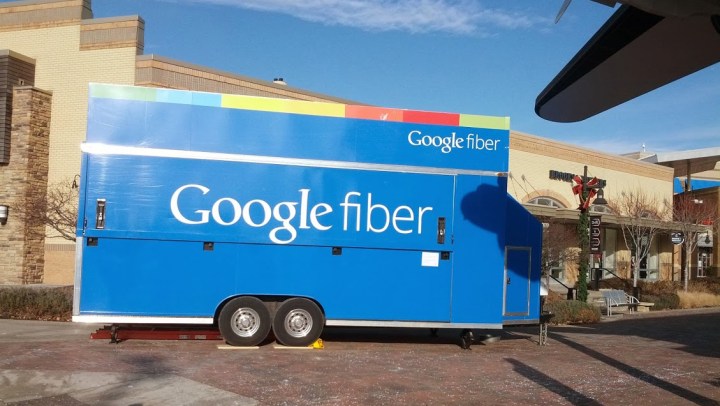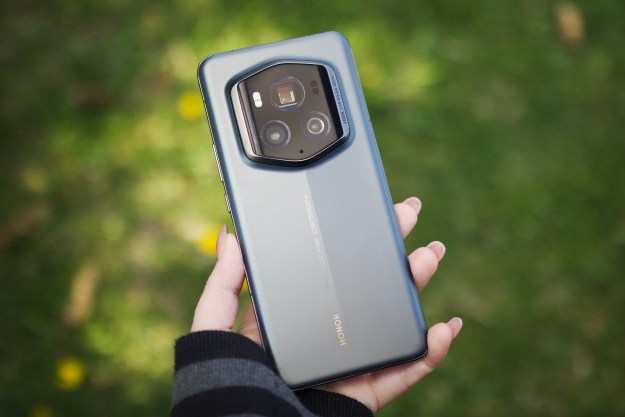
Much in the documents has been redacted, but the portions that aren’t divulge a few specifics. Google intends to test “experimental transmitters” on a gigahertz frequency — specifically between the bands of 3,400 MHz and 3,800 MHz. And it’s seeking the FCC’s approval to deploy the tech in up to 24 U.S. metropolitan areas.
The lucky cities are an equitable mix of metros with and without wireline Fiber installations. The former include stalwarts like Austin, Texas, and Provo, Utah. The others on the tentative list are uncharted territory: Atwater, Mountain View, Palo Alto, San Bruno, San Francisco, and San Jose, in California; Boulder, Colorado; Omaha, Nebraska; Raleigh, North Carolina; and Reston, Virginia.
Google’s been testing wireless technology in Kansas City, the first city to receive Fiber service, for the past several weeks, the documents revealed.
It’s not exactly Fiber’s first big move away from wireline. In June, the Google subsidiary signed a deal to acquire Webpass, a 13-year-old high-speed internet provider with a presence in parts of San Francisco, San Diego, and Oakland. Wireless, not coincidentally, is the firm’s bread and butter. Webpass subscribers in Miami, Boston, and elsewhere receive speeds ranging from 100Mbps to 1Gbps for $60 a month.
Google executives have spoken relatively candidly about the potential of a mostly wireless Fiber. At Alphabet’s quarterly shareholder meeting in June, Chairman Eric Schmidt spoke about the company’s exploratory steps toward fiber-optic alternatives — specifically, radios capable of transmitting internet traffic at “gigabit per second” speed. And in an interview with Recode earlier this year, Craig Barrat, a senior vice president at Alphabet who oversees Google’s connectivity efforts, said the company would consider rolling out wireless solutions to rural and “lower-density” regions of the country where fiber was cost-prohibitive.
“We are experimenting with a number of different wireless technologies,” Barrat told Recode. “One of the things that is intriguing about wireless is that it allows you to reach houses and users that are in [settings] where fiber becomes too expensive. We’re trying to figure out how to remove barriers that prevent consumer choice.”
But Google faces an uphill technological climb. Its wireless choice of medium in question, millimeter wave technology, is limited in range and affected by both inclement weather and physical obstacles. And it relies on strategic equipment placement, frequently on the tops of “high buildings” and outside the windows of would-be customers’ homes. But the cost savings associated with wireless trump the logistical challenges, Barrat told Recode. Perhaps more importantly, unlike fiber wire, it doesn’t require access to utility poles and switching stations owned by sometimes uncooperative internet service providers.
The FCC filing comes on the heels of Google’s decision to halt the rollout of Fiber in the California cities of San Jose, Mountain View, Sunnyvale, Santa Clara, and Palo Alto. According to the San Jose Mercury News, the company has instituted a moratorium on fiber expansions until it has a chance to “reassess the technology” and “explore a cheaper alternative” — i.e., wireless service “that does not require expensive, capital-intensive, and time-consuming installation of fiber cables under the ground.”
Google’s not the only company to attempting to build a gigabit wireless network from scratch. Starry, a startup founded by former Aereo chief Chet Kanoji, has plans to test a millimeter wave system operating on the 38 GHz band in Boston.


